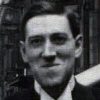One barking Dog, sets all the Street a-barking.
Thomas Fuller (1654-1734) English physician, preacher, aphorist, writer
Gnomologia: Adages and Proverbs (compiler), # 3736 (1732)
(Source)
Quotations about:
dog
Note not all quotations have been tagged, so Search may find additional quotes on this topic.
There are three faithful friends, an old wife, an old dog, and ready money.
Benjamin Franklin (1706-1790) American statesman, scientist, philosopher, aphorist
Poor Richard (1738 ed.)
(Source)
Yes, poor doggie, you are very stupid, very stupid indeed, compared with us clever men, who understand all about politics and philosophy, and who know everything in short, except what we are, and where we came from, and whither we are going, and what everything outside this tiny world and most things in it are.
Jerome K. Jerome (1859-1927) English writer, humorist [Jerome Klapka Jerome]
Idle Thoughts of an Idle Fellow, “On Cats and Dogs” (1889)
(Source)
There will always be a lost dog somewhere that will prevent me being happy.
[Il y aura toujours un chien perdu quelque part qui m’empêchera d’être heureux.]
A man who owns a dog is, in every sense of the word, its master; the term expresses accurately their mutual relations. But it is ridiculous when applied to the limited possession of a cat. I am certainly not Agrippina’s mistress, and the assumption of authority on my part would be a mere empty dignity, like those swelling titles which afford such innocent delight to the Freemasons of our severe republic. If I call Agrippina, she does not come; if I tell her to go away, she remains where she is; if I try to persuade her to show off her one or two little accomplishments, she refuses, with courteous but unswerving decision.
People who hate cats tend to be proud of the fact, and brag about it as if it proved something honest and straightforward in their natures. Nobody brags about hating dogs. To hate dogs would be meanspirited and peculiarly unpatriotic; dogs are a very American concept, fraternal, hearty, and unpretentious, while cats are inscrutable like the wily Oriental and elitist like the European esthete. In advertising cats turn up selling perfume (wily) and expensive rugs and furniture (elitist) , while dogs sell such solid family values as station wagons, life insurance, and sporting goods.
I love both the way a dog looks up to me and a cat condescends to me.
I muse not that your Dog turds oft doth eat;
To a tongue that licks your lips, a turd’s sweet meat.[Os et labra tibi lingit, Manneia, catellus:
Non miror, merdas si libet esse cani.]Martial (AD c.39-c.103) Spanish Roman poet, satirist, epigrammatist [Marcus Valerius Martialis]
Epigrams [Epigrammata], Book 1, epigram 83 (1.83) (AD 85-86) [tr. Davison (1608)]
(Source)
"On Manneia." (Source (Latin)). Alternate translations:That thy Dog loves to lick thy Lips, th'art pleas'd;
He'll lick that too, of which thy Belly's eas'd;
And not to flatter, and the Truth to smother,
I do believe, he knows not one from t'other.
[tr. Killigrew (1695)]On thy lov'd lips, the whelpling lambent hung.
No wonder if a dog can feed on dung.
[tr. Elphinston (1782), Book 12, ep. 171]Your lap-dog, Manneia, licks your mouth and lips:
I do not wonder at a dog liking to eat ordure.
[tr. Bohn's Classical (1859)]Your face and lips, Manneia, your little dog licks;
I don't wonder that a dog likes to eat filth.
[tr. Ker (1919)]Your dog licks your mouth and you don't push him from it.
But what says the proverb -- "A dog and his vomit"?
[tr. Pott & Wright (1921)]Your puppy licks your face and your lips:
No wonder, considering the way he also dips
into turds.
[tr. Bovie (1970)]Your little dog licks you from head to foot
Am I surprised, Manneia?
Not a bit.
I’m not surprised that dogs like shit.
[tr. O'Connell (1987)]Manneia, your little dog licks your face and lips. Small wonder that a dog likes eating dung.
[tr. Shackleton Bailey (1993)]Manneia, your lapdog licks his lips with his tongue.
It’s no surprise that a dog likes eating dung.
[tr. McLean (2014)]Dear Manneia:
Your lapdog’s licking your lips and chin:
no wonder with that shit-eating grin.
[tr. Juster (2016)]Your little puppy licks your mouth and lips --
Manneia, I no longer find it strange
That dogs are tempted by the smell of turds.
[tr. Salemi]Your puppy licks your mouth and lips
And never wants to quit.
Manneia, I don't wonder why.
All dogs eat their shit.
[tr. Cooper]
Near this spot
are deposited the Remains of one
who possessed Beauty without Vanity,
Strength without Insolence,
Courage without Ferocity,
and all the Virtues of Man without his Vices.
This Praise, which would be unmeaning Flattery
if inscribed over human Ashes,
is but a just tribute to the Memory of
BOATSWAIN, a DOGGeorge Gordon, Lord Byron (1788-1824) English poet
“Epitaph to a Dog” (1808)
(Source)
Carved on the headstone over Boatswain's grave at Newstead Abbey, the family's ancestral home. Byron acquired the dog at age fifteen; Boatswain died of rabies, an endemic disease in England at the time, five years later. Byron wanted to be buried beside him, but the sale of the property made that impossible.
While the rest of the poem is considered Byron's, the first lines may have been written by his friend, John Cam Hobhouse. More discussion here.
By and large, people who enjoy teaching animals to roll over will find themselves happier with a dog.
People who wish to salute the free and independent side of their evolutionary character acquire cats. People who wish to pay homage to their servile and salivating roots own dogs.
Anna Quindlen (b. 1953) American journalist, novelist
Article (1991-04-07), “Mr. Smith Goes to Heaven,” New York Times
(Source)
Part of an obituary for her dog, Jason Oliver C. Smith. Reprinted in Thinking Out Loud (1993).
That must be why some people like dogs; they can be made to feel guilty about anything, including the sins of their owners. Cats refuse to take the blame for anything — including their own sins.
Elizabeth Peters (1927-2013) American author [pseud. of Barbara Mertz, who also wrote as Barbara Michaels]
Trojan Gold (1987)
(Source)
Dogs want only love but cats demand worship.
Throw a stick, and the servile dog wheezes and pants and shambles to bring it to you. Do the same before a cat, and he will eye you with coolly polite and somewhat bored amusement.
H. P. Lovecraft (1890-1937) American fabulist [Howard Phillips Lovecraft]
“Cats and Dogs” (23 Nov 1926), Leaves (Summer 1937)
(Source)
Reprinted as "Something about Cats" in Something About Cats: And Other Pieces (1949) [ed. Derleth].
We own a dog — he is with us as a slave and inferior because we wish him to be. But we entertain a cat — he adorns our hearth as a guest, fellow-lodger, and equal because he wishes to be there. It is no compliment to be the stupidly idolised master of a dog whose instinct it is to idolise, but it is a very distinct tribute to be chosen as the friend and confidant of a philosophic cat who is wholly his own master and could easily choose another companion if he found such an one more agreeable and interesting.
H. P. Lovecraft (1890-1937) American fabulist [Howard Phillips Lovecraft]
“Cats and Dogs” (23 Nov 1926), Leaves (Summer 1937)
(Source)
Reprinted as "Something about Cats" in Something About Cats: And Other Pieces (1949) [ed. Derleth].
If animals could speak as fabulists have feigned, the dog would be a blunt, blundering, outspoken, honest fellow, but the cat would have the rare talent of never saying a word too much.
Philip Gilbert Hamerton (1834-1894) British artist, art critic and author.
Chapters on Animals, ch. 4 “Cats” (1893)
(Source)
Sometimes misattributed to Mark Twain.
Confront a child, a puppy, and a kitten with a sudden danger; the child will turn instinctively for assistance, the puppy will grovel in abject submission, the kitten will brace its tiny body for a frantic resistance.
H. H. Munro (1870-1916) Scottish writer [Hector Hugh Munro; pseud. Saki]
“The Achievement of the Cat” (1924)
(Source)
The universe contains any amount of horrible ways to be woken up, such as the noise of the mob breaking down the front door, the scream of fire engines, or the realization that today is the Monday which on Friday night was a comfortably long way off. A dog’s wet nose is not strictly speaking the worst of the bunch, but it has its own peculiar dreadfulness which connoisseurs of the ghastly and dog owners everywhere have come to know and dread. It’s like having a small piece of defrosting liver pressed lovingly against you.
The art object is always passive in relation to its audience. It is alarmingly active, however, in relation to its creator. Far from being like a receptacle in which you, the artist, drop your ideas, and far from being like a lump of clay which you pummel until it fits your notion of an ashtray, the art object is more like an enthusiastic and ill-trained Labrador retriever which yanks you into traffic.
Annie Dillard (b. 1945) American author
Living by Fiction (1983)
(Source)
Often paraphrased, "Art is like an ill-trained Labrador retriever that drags you out into traffic."
Maybe this is the chief thing the dog knows better than we do. There isn’t enough time in life to do anything but love and do our work with joy. We should sleep when we’re tired. Run with abandon. Always be happy to see each other. And never stop believing we will, someday, catch the squirrel.
I am sorry to hear of the little dog’s death. The animal creation is a strange mystery. We can make some attempt to understand human suffering: but the sufferings of animals from the beginning of the world till now (inflicted not only by us but by one another) — what is one to think? And again, how strange that God brings us into such intimate relations with creatures of whose real purpose and destiny we remain forever ignorant. We know to some degree what angels and men are for. But what is a flea for, or a wild dog?
Munny will buy a pretty good dog, but it wont buy the wag ov hiz tale.
[Money will buy a pretty good dog, but it won’t buy the wag of his tail.]
Josh Billings (1818-1885) American humorist, aphorist [pseud. of Henry Wheeler Shaw]
Josh Billings’ Trump Kards, ch. 14 “A Ghost” (1874)
(Source)
Love me, love my dog.
John Heywood (1497?-1580?) English playwright and epigrammist
Proverbes, Part 2, ch. 9 (1546)
(Source)
Earlier noted as a common proverb by Bernard of Clairvaux in the 11th Century: "Qui me amat, amet et canem meum [Who loves me will love my dog also] in his First Sermon on the Feast of St Michael.
The great pleasure of a dog is that you may make a fool of yourself with him and not only will he not scold you, but he will make a fool of himself, too.
Samuel Butler (1835-1902) English novelist, satirist, scholar
The Note-Books of Samuel Butler, “Dogs” (1912)
(Source)
SHYLOCK: Thou call’dst me dog before thou hadst a cause,
But since I am a dog, beware my fangs.William Shakespeare (1564-1616) English dramatist and poet
Merchant of Venice, Act 3, sc. 3, l. 7ff (3.3.7-8) (1597)
(Source)



























